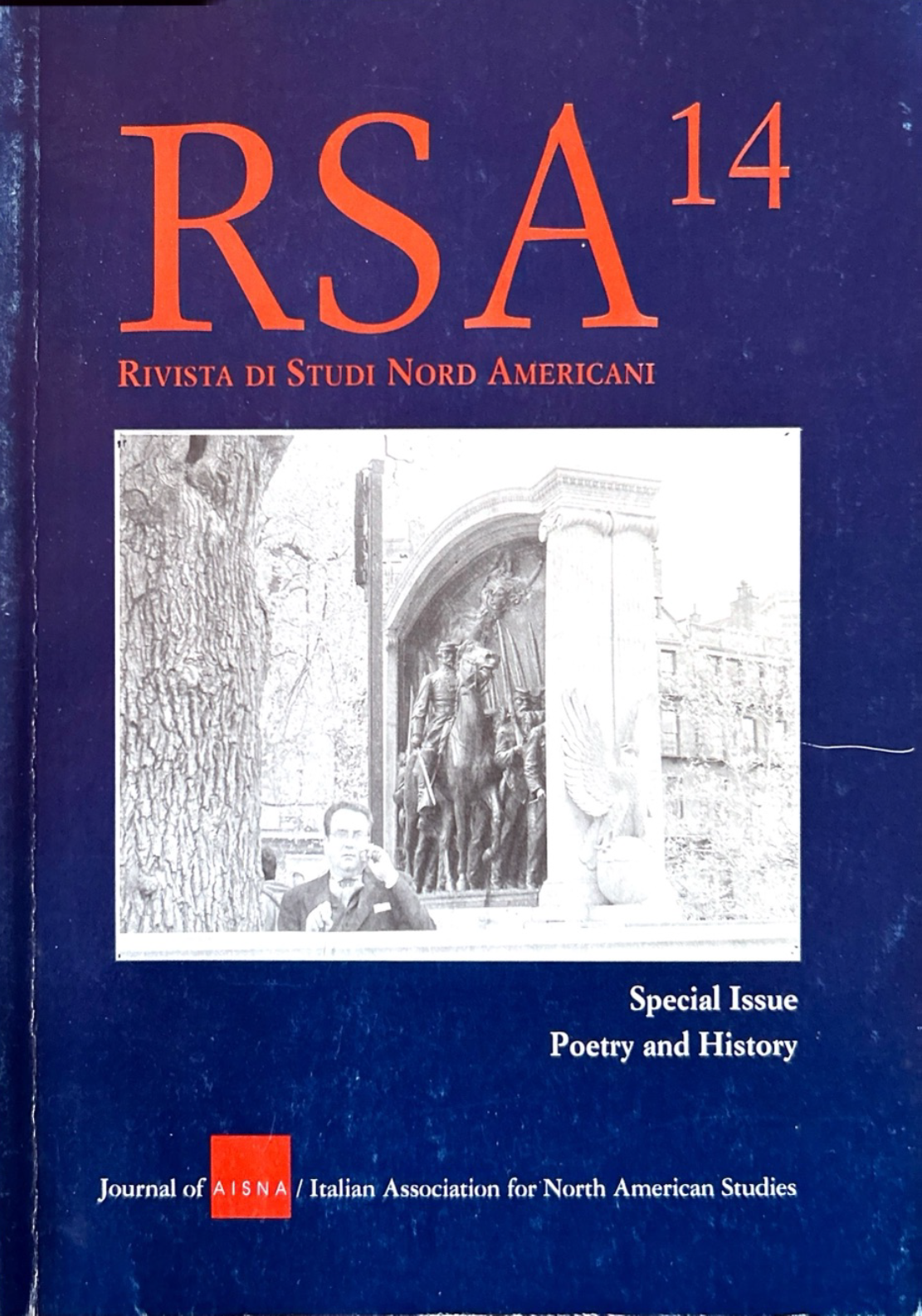History and the American Poet
DOI:
https://doi.org/10.13135/1592-4467/8815Keywords:
American history, American poem, philosophyAbstract
According to a critical tradition that goes back to Aristotle, poetry is "more philosophic" than history. American poets from Joel Barlow onward have always taken history as their province, and the Modernists have Iarnously attempted long poems that are historical in scope ("an epic is a poem including history;" as Ezra Pound announced) . Poets of today are more modest in their ambition, yet their poems are historical documents through which we can approach American society, and which U.S. readers still respond to as guides to their own experience. Charles Wright's "Archaeology" and its appearance in cyberspace is an example, in being both intimate and public. Present reactions to some of the main historical questions faced by poets are considered in the light of two recent (2005) conferences on Ezra Pound and Wallace Stevens, writers who offered more and less direct purchases on history. WW2 is a test-case of their reactions. Pound responds immediately to the drama, Stevens seeks within it a general (ergo "more philosophic") truth.
Downloads
Published
Issue
Section
License
RSAJournal will apply a CC BY 4.0 license to all its contributions starting with issue 37 (2026). Previous issues are licensed under a CC BY-NC-ND licence.





